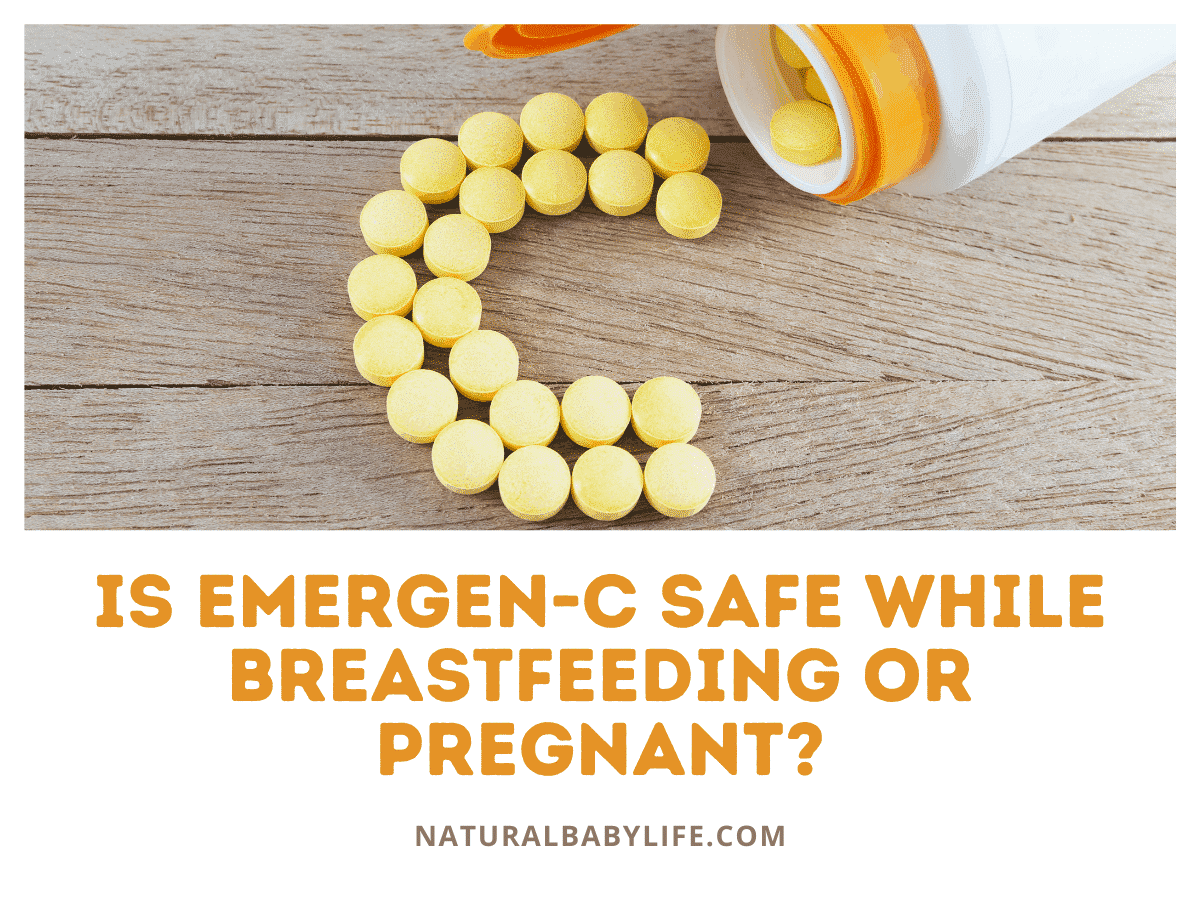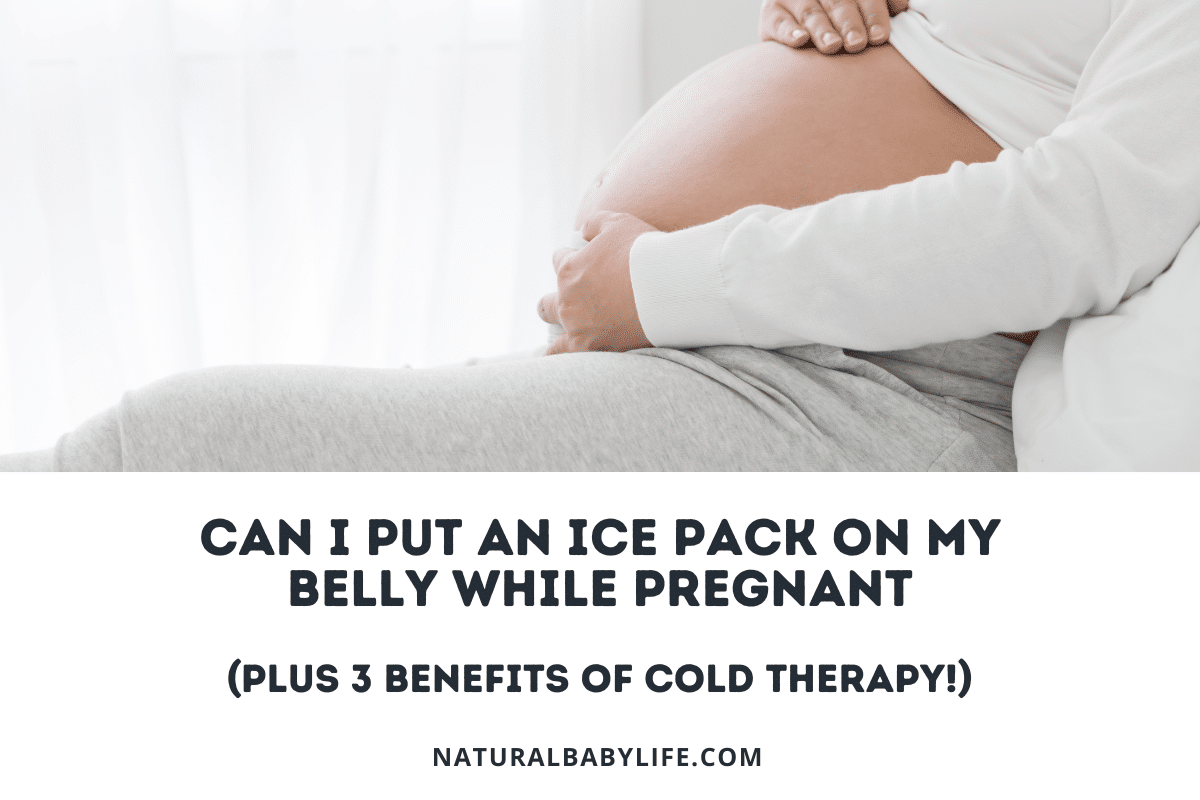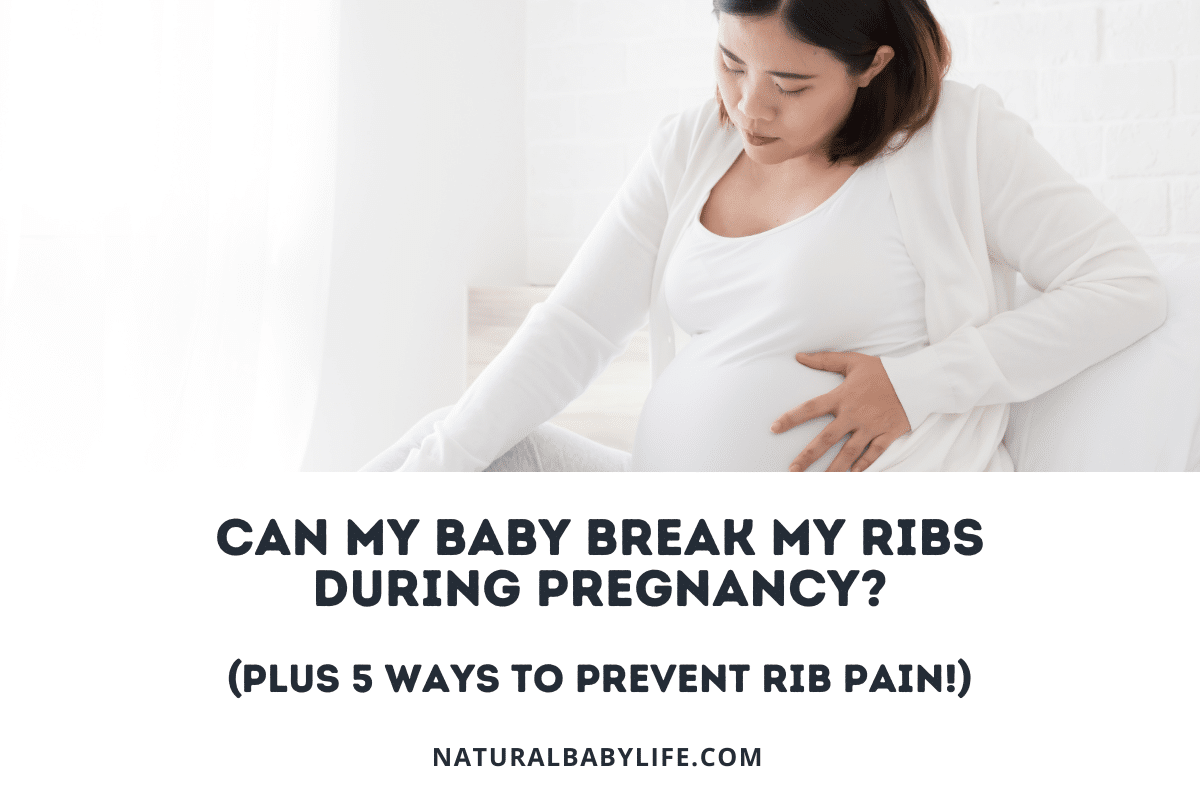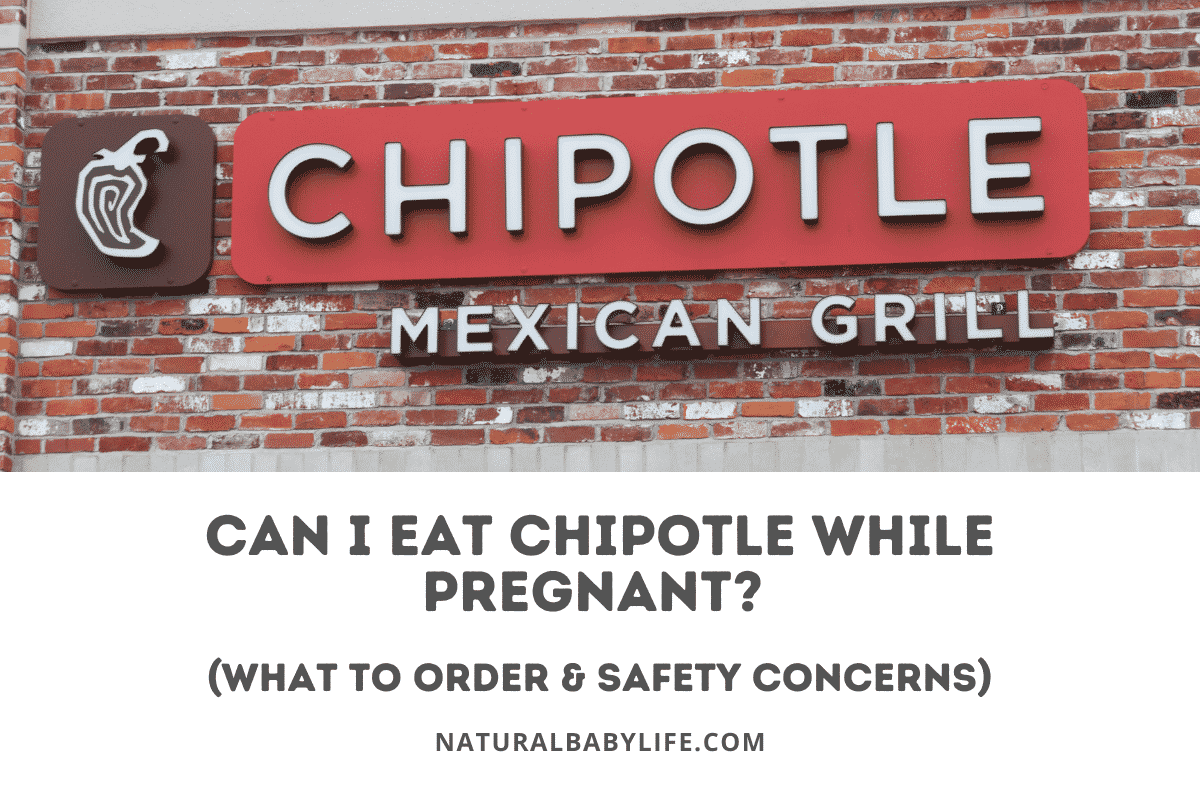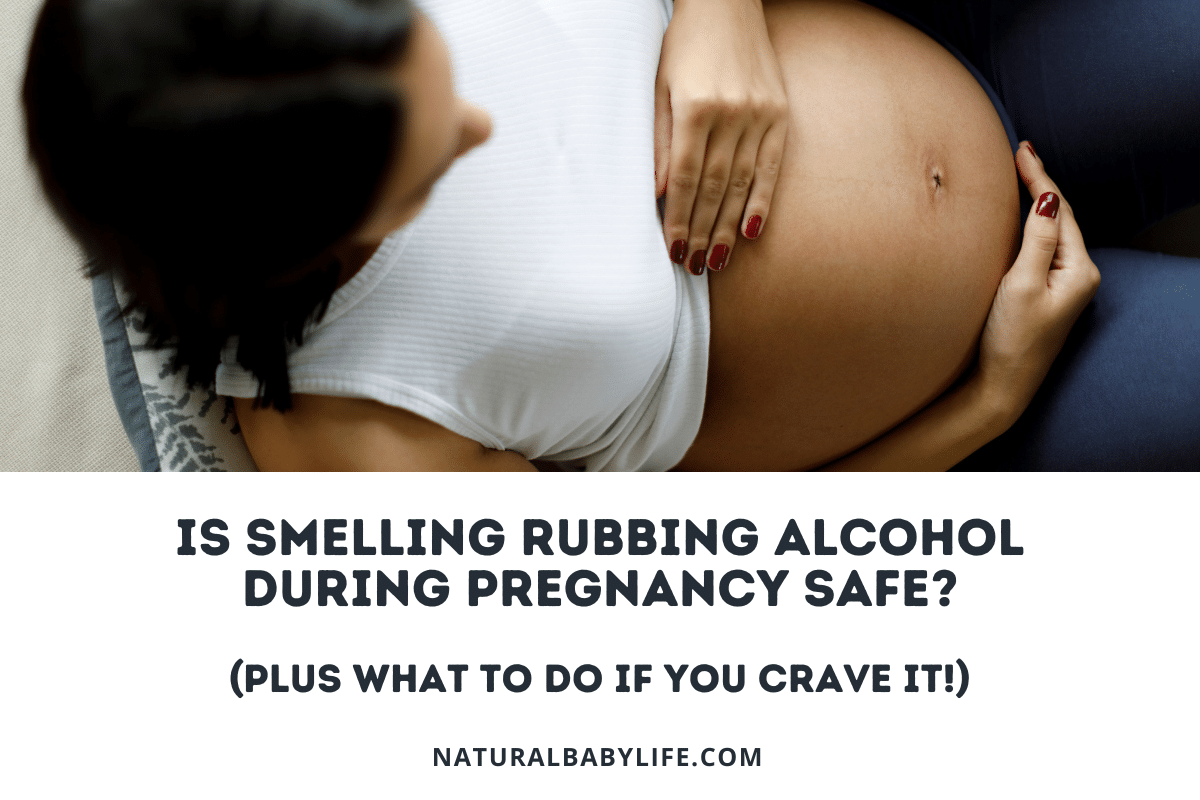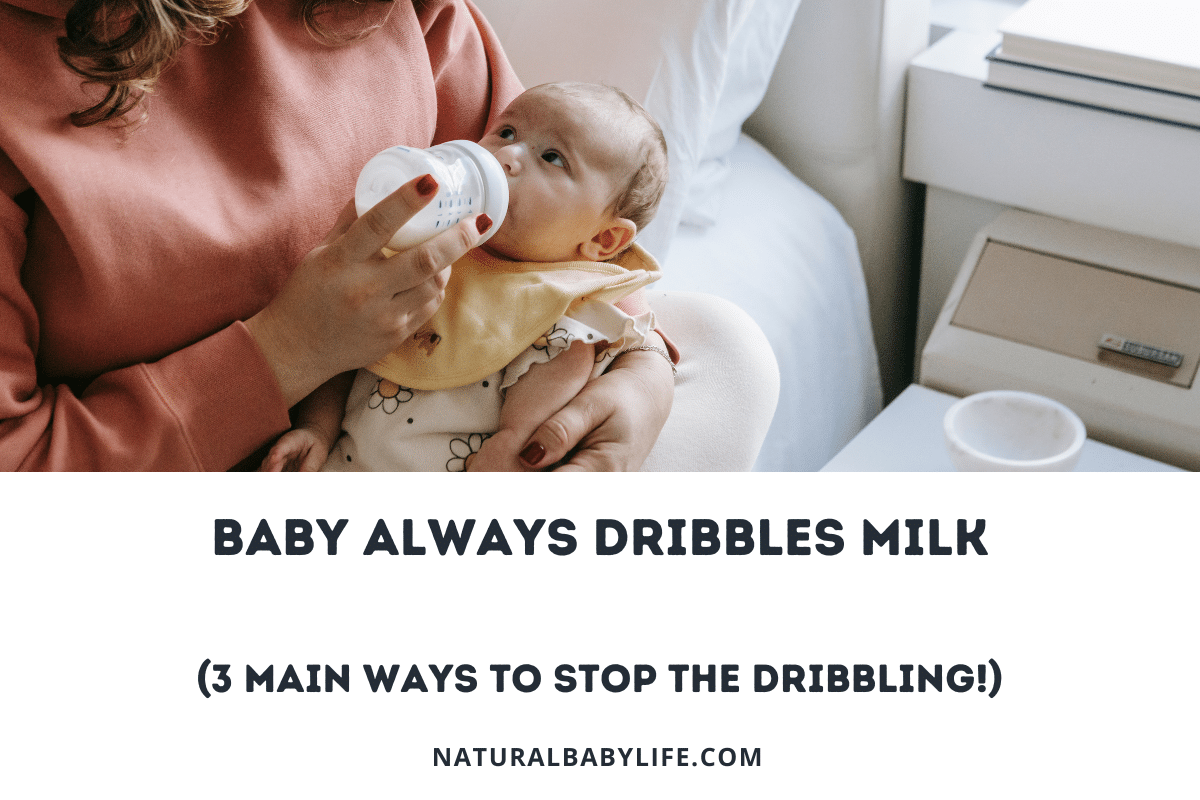When you’re pregnant or breastfeeding, you want to make sure your immune system is functioning at its best. If you feel a cold coming on, you may be tempted to reach for the Emergen-C. But is Emergen-C safe while you are pregnant or breastfeeding?
Emergen-C is generally considered safe for breastfeeding or pregnant women to use occasionally without experiencing any side effects. Pregnant women should not, however, consume more than 2,000 milligrams of vitamin C per day to avoid potential issues with the baby.
Let’s take a deeper look at Emergen-C to find out what exactly is in it, how to use it safely, and what alternatives you have.
Table of Contents
What is Emergen-C?
Emergen-C is a supplement that is intended to help prevent a cold from the beginning or getting worse. The original formula is a powder that can be mixed into water to create a drink. There are several flavors and varieties. Some common products, along with Original, are Immune Support, Botanicals, and Energy.
Emergen-C also comes in chewy tablets. Each variety has differing amounts of vitamins, so it’s important to look closely at the label of the one you plan to take.
Emergen-C ingredients
The original formula of Emergen-C is the most popular, so let’s look at what exactly it contains. The main ingredient is vitamin C, but it also has some other vitamins and minerals that are considered immune boosters as well.
- B Vitamins
- Calcium
- Phosphorus
- Magnesium
- Chromium
- Zinc
- Manganese
- Sodium
- Potassium
- Sugar
- Additives and Preservatives
It’s important to note that other forms of Emergen-C have varying amounts of some vitamins. The Immune Support kind, for example, has a lot more zinc, which you want to avoid while pregnant. Their Botanicals line has various herbs, and not all of them are okay while pregnant. So read labels carefully and check with your doctor!
Is it safe to take Emergen-C while pregnant or breastfeeding?
It is generally safe to take the original Emergen-C while pregnant or breastfeeding but check with your doctor to verify. Because the main ingredient is vitamin C, most information that points to the safety of Emergen-C focuses on the safety of vitamin C.
If you are breastfeeding, taking 1,000mg of vitamin C (the amount found in Emergen-C) does increase the vitamin C levels in your milk, but not to a degree that it is harmful for your baby. In fact, your body regulates vitamin C in milk, so even if you take too much, that higher amount will not make it to your milk.
This is not the same for pregnancy, though. Too much vitamin C during pregnancy does get to your baby, and regular excessive doses can affect the baby’s ability to metabolize vitamin C after birth, which can lead to scurvy.
Taking the recommended dose of Emergen-C per day for a few days shouldn’t be an issue, but make sure you are watching your other sources of vitamin C.
Safety of Emergen-C ingredients for pregnant or breastfeeding women
Vitamin C isn’t the only ingredient in Emergen-C though, so let’s go through the other big ones and see if they are also okay for pregnancy and breastfeeding.
- Vitamin C, 1,000mg: The recommended daily allowance (RDA) of vitamin C for pregnant and breastfeeding women over 18 is 120mg. While this exceeds that amount, it doesn’t hit the maximum allowance, which is 2,000mg. Keep in mind that you are getting vitamin C from your diet and probably your prenatal vitamin as well, though. So you’ll need to do the math to see if you can take Emergen-C without going past the maximum amount of vitamin C you are allowed in a day.
- B Vitamins: These include thiamin, niacin, riboflavin, B6, folate, B12, and pantothenic acid. The amount in Emergen-C is relatively low for most, except B6. But for the most part, excess B vitamins that your body doesn’t need are excreted through the urine.
- Calcium, 50mg: You need 1,000mg per day during pregnancy, so this amount will help you get there but won’t have a huge impact.
- Phosphorus, 38mg: You need 700mg a day during pregnancy and lactation
- Magnesium, 53mg: You need 350mg a day during pregnancy and lactation
- Chromium, 10mcg: You need 30mcg a day during pregnancy and lactation
- Zinc, 2mg: You need about 11mg of zinc per day during pregnancy. Too much zinc can cause problems for breastfeeding babies, so you should stick to the regular Emergen-C that has a smaller dose of zinc. Avoid zinc supplementation during early postpartum, because your milk is already high in zinc during this time.
- Manganese, .5mg: You need 2mg per day during pregnancy and lactation
- Sodium, 65mg: You can have up to 1,500mg per day during a healthy pregnancy. If your doctor is watching your sodium levels, you need to be careful not to go over your recommended amount with hidden sodium.
- Potassium, 200mg: You need 2,900mg per day during pregnancy and lactation.
- Sugar, 6g: This is a small amount of sugar, but also you want to make sure you are limiting your sugar intake as much as possible.
- Additives and Preservatives: Emergen-C has things like citric acid and natural flavors. They are all recognized as safe for pregnancy and breastfeeding, but take a look at the label before you drink it just to be sure there isn’t an ingredient you are sensitive to.
The makers of Emergen-C recommend one dose per day during your illness, so make sure you are following this rule.
Is it safe to take extra vitamin C while breastfeeding or pregnant?
If you are pregnant, you should avoid taking too much extra vitamin C. Doses over 2,000mg can cause issues with your baby’s ability to metabolize vitamin C, which can lead to scurvy.
If breastfeeding, only a certain amount of vitamin C will make its way to your milk, so your baby won’t be harmed – but also won’t benefit – from very high doses that you take.
Does Emergen-C increase breast milk supply?
There is some limited anecdotal evidence that supplementing with vitamin C (the main ingredient in Emergen-C) can increase your milk supply. Some moms have reported noticing an increase in milk when taking vitamin C.
It can’t hurt to try as long as you don’t go beyond 2,000mg. But keep in mind that milk production is mostly based on supply and demand.
Do pregnant or breastfeeding mothers need Emergen-C?
There isn’t a lot of data about Emergen-C’s effectiveness in pregnant and breastfeeding mothers.
The lack of data from pregnant and breastfeeding women is because, just like with other medications, researchers cannot ethically study pregnant women in an objective way. For adults in general, however, high doses of vitamin C have been shown to reduce the length of a cold by one day.
While this doesn’t sound like much, an entire day less illness can make a huge difference for a busy mom!
If you feel like your diet has been lacking, especially if you have morning sickness and haven’t been eating a varied diet, you may want to take Emergen-C just in case when you are sick. One dose per day, while you are recovering from your cold, should be fine. Double-check with your doctor to be on the safe side.
You don’t need Emergen-C though. If your doctor doesn’t give you the clear, or if you just want to be extra cautious, you can focus on increasing your consumption of foods that are high in vitamin C instead.
A woman’s immune system during pregnancy is weaker
During pregnancy, your immune system changes in complicated ways. Scientists are still discovering new information about how this process works, but in general, you are considered to be at a higher risk for illness and infection. This is because your immune system fluctuates to allow the fetus to implant and grow.
Although you can’t really avoid all germs during pregnancy, it’s a good idea to take all the steps you can to stay healthy.
How much vitamin C is in prenatal vitamins?
Typically prenatal vitamins have the recommended daily amount of vitamin C for pregnant and breastfeeding women, so about 100-120mg. Check the label of yours though, because some companies have stopped including vitamin C in their prenatal because it’s so easy to get what you need from food.
Can you get the same amount of vitamin C and other ingredients from food?
Our bodies do not make vitamin C, so it’s necessary to get it from food or supplements. In the typical Western diet, getting your RDA from food is pretty easy. We all know oranges have vitamin C, but lots of other fruits and vegetables do as well. Some common examples:
- 1 medium orange: 60mg
- ½ cup raw red bell pepper: 95mg
- ½ cup cooked broccoli: 50mg
- 1 cup strawberries: 98mg
From these examples, you can see it isn’t hard to get the 120mg recommended for pregnant and breastfeeding women.
Other vitamins in Emergen-C are in the foods you eat as well. B vitamins can be found in dairy, meat, leafy greens, and beans. Many breads and cereals are fortified with B vitamins also. If you are vegetarian or vegan, you should supplement with B12, because it is only found naturally in animal products.
Zinc is another key ingredient for the immune function that is in Emergen-C. It’s fairly easy to get your recommended 11-12mg from meat, beans, and dairy. Pumpkin seeds and almonds are also high in zinc.

